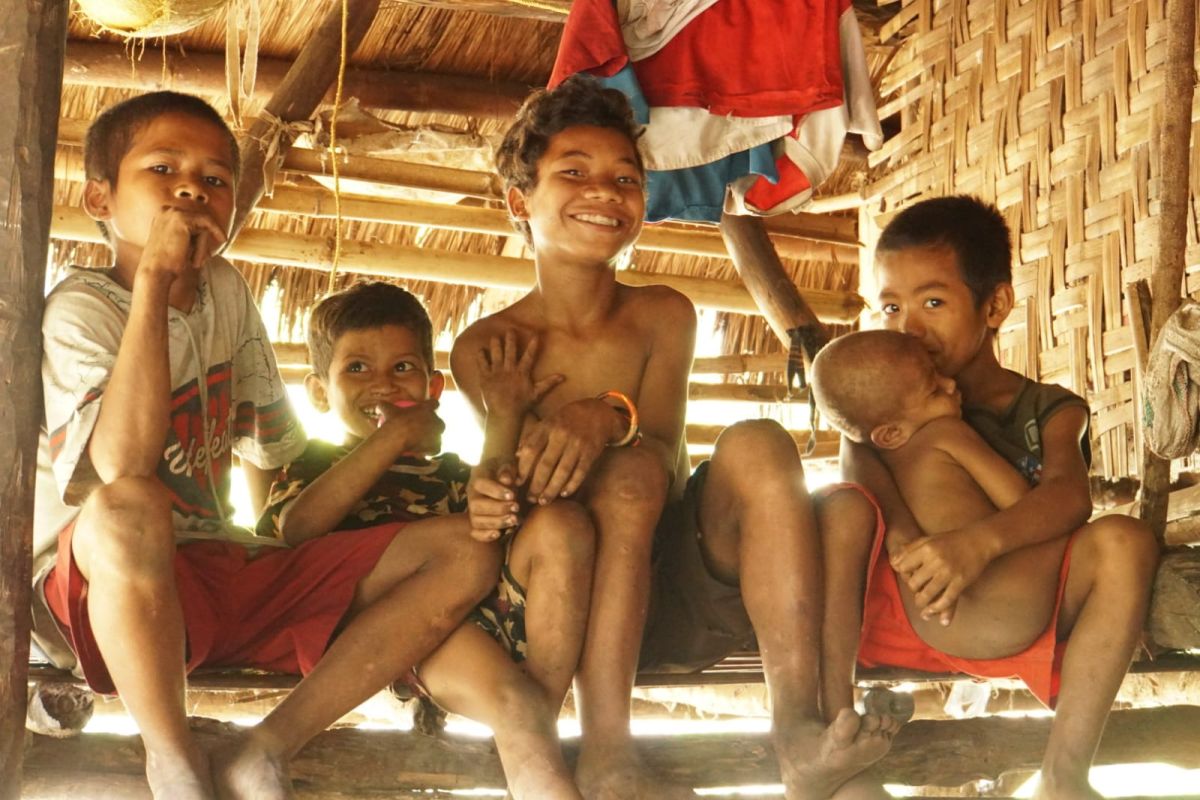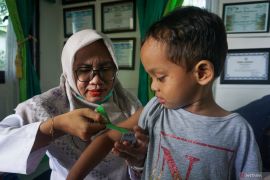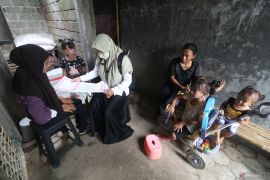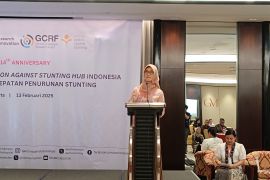Stunting is a national problem that we should resolve together and it necessitates collaboration by all partiesJakarta (ANTARA) - Some 15 districts in East Nusa Tenggara (ENT) are in a state of emergency due to the problem of stunting, National Population and Family Planning Agency's (BKKBN's) Head, Hasto Wardoyo, noted in a statement, Friday.
According to the 2021 Indonesia Nutrition Status Study (SSGI), 15 districts in ENT fall under the red category due to the stunting figure having surpassed 30 percent.
These districts comprise South Central Timor, North Central Timor, Alor, Southwest Sumba, East Manggarai, Kupang, Rote Ndao, Belu, West Manggarai, West Sumba, Central Sumba, Sabu Raijua, Manggarai, Lembata, and Malaka.
In fact, South Central Timor and North Central Timor recorded prevalence figure of above 46 percent.
Five of these districts are included within the top 10 regions, with the highest stunting prevalence rate in Indonesia out of the 246 districts or cities that became a priority for accelerating stunting reduction.
Among these five districts, South Central Timor ranked first, North Central Timor came second, Alor stood fifth, Southwest Sumba was placed sixth, and East Manggarai stood eight.
The BKKBN highlighted that seven districts or cities -- Ngada, East Sumba, Nagekeo, Ende, Sikka, Kupang, and East Flores -- fell in the yellow category, or with the stunting rate between 20-30 percent.
"There is not a single region in East Nusa Tenggara that has the green status or having recorded stunting prevalence of between 10 to 20 percent, let alone the blue status for stunting prevalence below 10 percent," Hardoyo pointed out.
Related news: More than 50% stunted children in five largest provinces: ministry
In order to address this issue, the BKKBN has formed 200 thousand family assistance teams comprising midwives, Family Welfare Development (PKK) officials, and Family Planning workers.
These teams will assist families starting from before women become pregnant until childbirth or within the child's first one thousand days of life.
Examination of future couples three months prior to marriage is also conducted as a precautionary measure against the likelihood of infants being born stunted.
Toilet and sanitation access examination as well as literacy improvement have also been expanded through collaboration between related institutions or ministries.
Moreover, the problem of stunting will be handled through assistance from universities via the Kampus Merdeka (Freedom in Campus) Program deemed effective in raising the people's literacy on stunting.
"The issue of stunting that currently prevails in society cannot simply be addressed by the government or stakeholders alone," Wardoyo remarked.
"Stunting is a national problem that we should resolve together, and it necessitates collaboration by all parties," he affirmed.
The World Health Organization (WHO) defines stunting as a child developmental disorder caused by poor nutrition, recurrent infections, and inadequate psychosocial stimulation.
Related news: Indonesia needs to work hard to curb childhood stunting: ministry
Related news: BKKBN boosts role of varsities in stunting reduction
Translator: Hreeloita S, Fadhli Ruhman
Editor: Suharto
Copyright © ANTARA 2022












